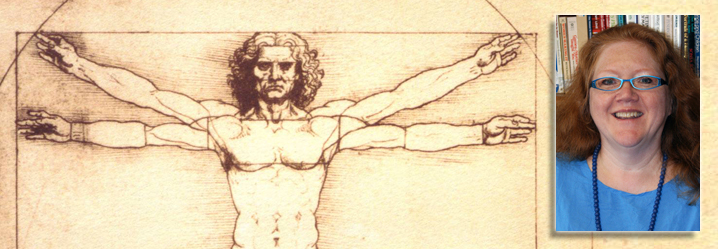
So why is the director of the UNL Women’s Center teaching a class on Men’s Studies?
Because, said Jan Deeds, men have a gender, too. And the misconceptions and stereotypes that can box men in are damaging, she said. Only by exploring the concepts of masculine identity can the intersections between all the genders be fully understood, Deeds said.
Gender studies, she said, examines how the viewer perceives people based on how the viewer defines gender.
Current thinking about how society defines masculinity has settled on four overarching pillars, what Deeds called hegemonic masculinity. First described by Robert Brannon in 1976, they are: “no sissy stuff,” the “sturdy oak” or tightly controlled emotions, “Give ‘em hell” or being the tough guy, and the “Big Wheel” or the dominant man in charge.
“That creates a very narrow box for men,” she said. “There are many ways to be masculine beyond these four.”
The idea for the course grew out of Deeds’ dissertation work in which she looked at factors that drive men’s participation in programs aimed to prevent rape and partner abuse. She was interested in what prompted men to get involved and what types of programming kept them involved. She earned her doctorate in 2009 and presented the idea for the class that same year.
This semester, “Introduction to Men’s Studies,” a 498-898 class offered through Women’s and Gender Studies, has attracted 16 students, five men and 11 women.
The course objectives include examining the historical development of men’s studies and men’s movements since the 1970s; looking at the intersections between men’s and women’s movements; examining masculine identity development; and developing a gender lens to observe and analyze the intersections between masculine identity and race, ethnicity, sexual orientation, age, gender performance and other social/cultural issues.
She’s heard all the snickers and jokes and endured the eye rolls. But the course fills a gap in Women’s and Gender Studies offerings, she said, and men’s studies is a natural outgrowth of the women’s studies movement.
“In the 1960s and ‘70s, when women’s lives began changing, well, guess what? Men’s lives changed, too,” she said. Notions of what makes us feminine or masculine, or a bit of each, create a continuum of genders, Deeds said.
Deeds hopes that the men’s movement, and this class, can remind people that gender is mutable and that gender is a performance that individuals choose to act. Once men, and women, understand the stereotypes set by society, they can choose to ignore them, enact them or challenge them, she said.
“It’s really exciting. It feels like this is exactly the right time for this because women’s studies and gender studies are embracing new ways of looking at things. We are ready for this type of discussion.”
Deeds is particularly excited that the class will have the opportunity to hear Michael Kimmel, a sociologist and one of the leading researchers and writer about men and masculinity. The author of the acclaimed book “Guyland: The Perilous Place Where Boys Become Men,” will visit Nebraska March 1 and 2 to lecture at UNL and participate in the annual “No Limits” conference in Omaha.
Kimmel argues that males ages 16-24 inhabit “guyland” where they are no longer boys, but also, not mature men. Guyland’s males are mostly white, middle class uber frat-boy types who drink a lot, engage in hookups, and generally cannot commit to relationships, work or lives outside of parties and video games. They often exhibit bullying, homophobic behaviors and violence. Women who become involved in “guyland” tend to adopt the hard-drinking, hard partying, hookup culture as well. With 22 million men in the cohort, “guy culture” is pervasive in America, Kimmel believes. In the book, Kimmel offers practical advice to escaping guyland.
Kimmel’s lecture will be at 7:30 p.m. March 1 in the Nebraska Union Auditorium.
— Kim Hachiya, University Communications